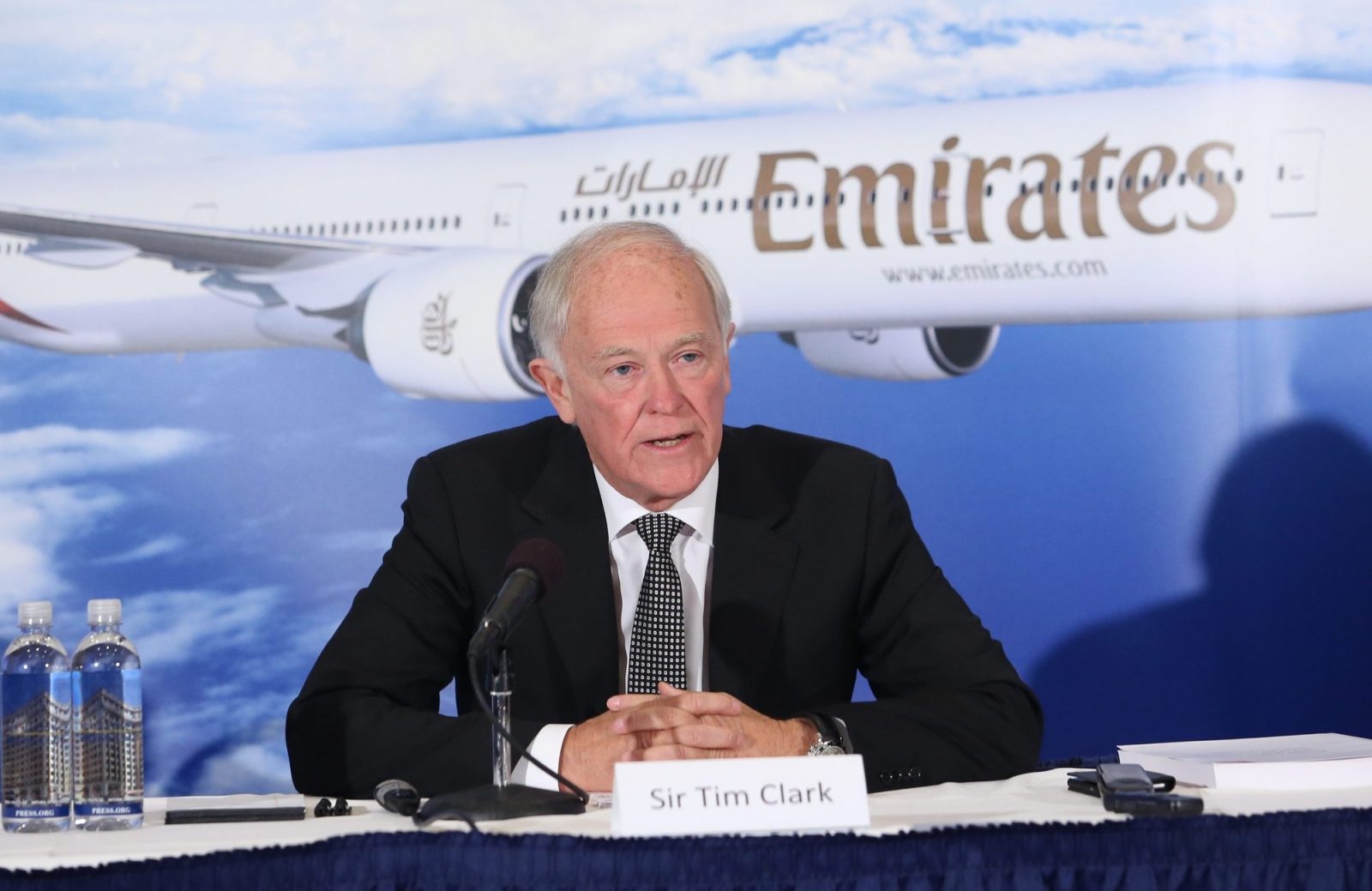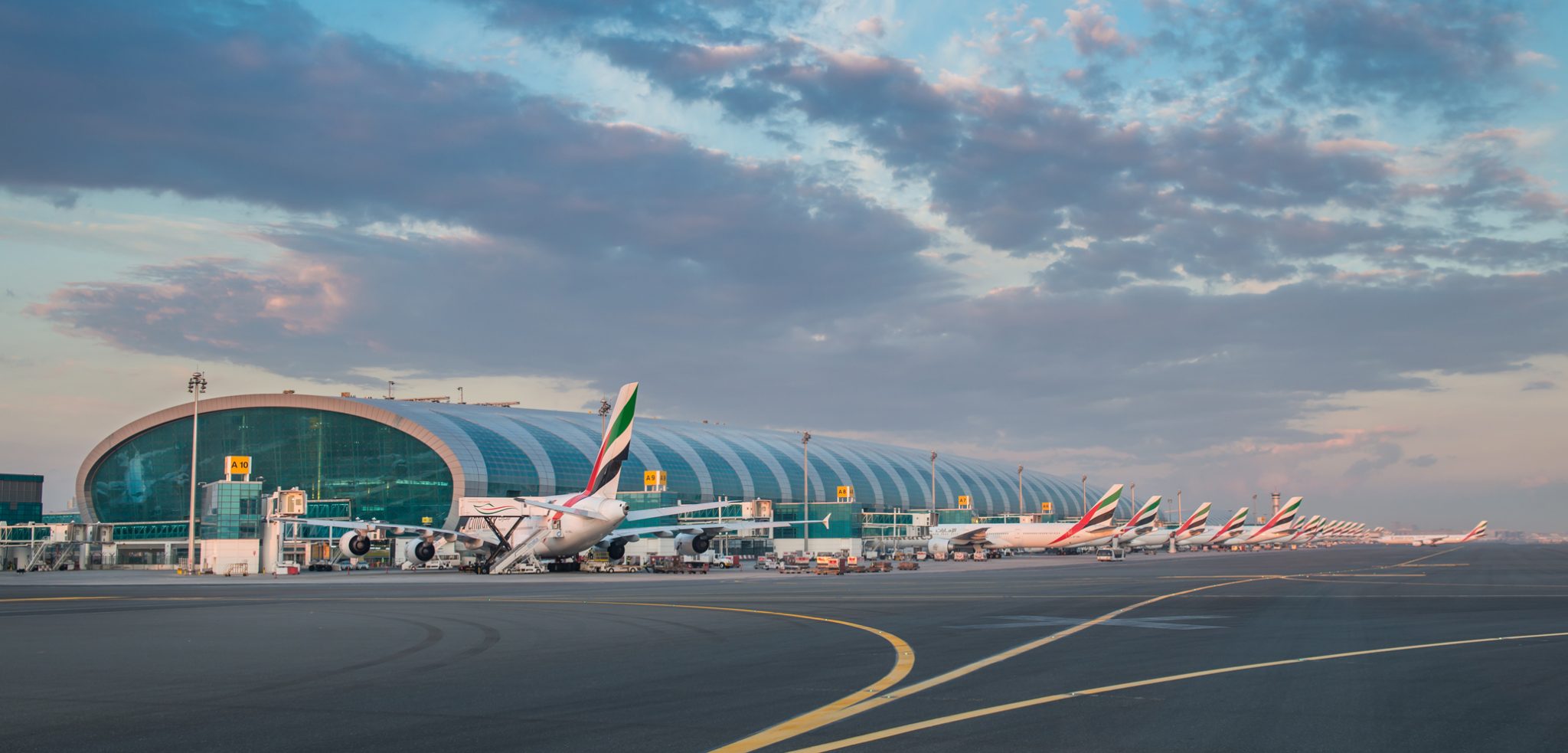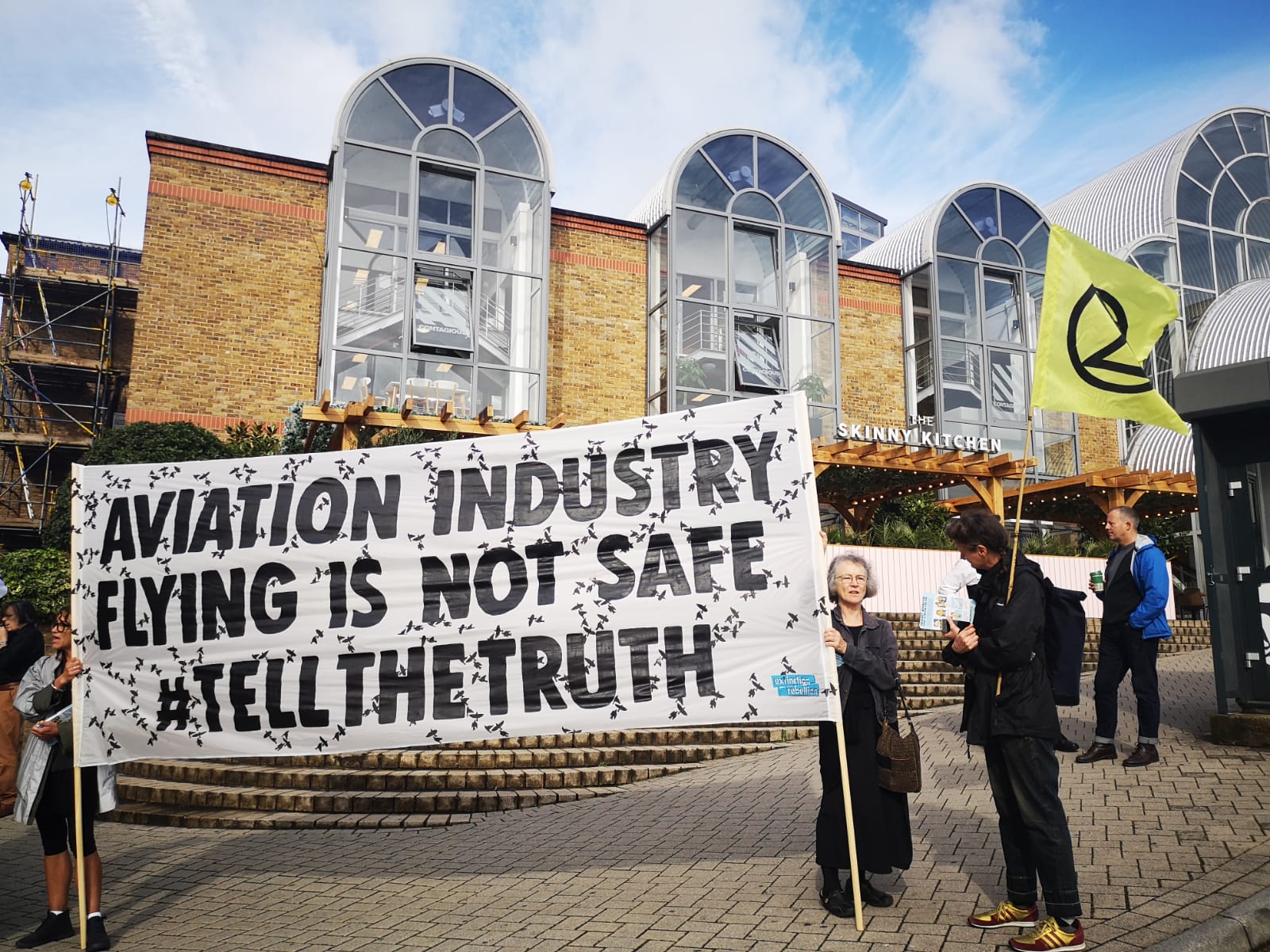
- “I quite like Extinction Rebellion and Greta Thunberg,” Sir Tim says
- Describes himself as a “climate change believer”
- Admits it took him “too long” to believe in climate change
- Calls for pollution from aviation to be cleaned up
A couple of weeks ago, Sir Tim Clark the President of Emirates – the largest international airline in the world – threw his full weight behind the climate change movement that has been newly popularised by global activist groups like Extinction Rebellion and Swedish schoolgirl Greta Thunberg.
“The stark reality of climate change is with us. I’m a climate change believer. I have to say, it took me a long time to get there,” Sir Tim told the BBC at the Dubai Airshow held in the city in November.

“And we (the airline industry) aren’t doing ourselves any favours by chucking billions of tons of carbon into the air. It’s got to be dealt with,” he admitted.
In a report published earlier this year by the Alliance of World Scientists and signed by over 1,000 scientists, researchers claimed the climate crisis was threatening natural ecosystems and “the fate of humanity”. Calls by scientists to radically reduce greenhouse emissions and change the way we live have been championed by the likes of Greta Thunburg, recently named Time’s person of the year for her activism.
“I quite like Extinction Rebellion and Greta Thunberg for having brought a real focus to the issue; a focus on the fact that we are not doing enough at the speed we should be,” Sir Tim said of these groups.
“I’m not condoning some of their methods. But Extinction Rebellion and Greta have a role to play… We really need this kind of thing to force us to make decisions,” he continued. Despite the fact protests are outlawed in Dubai, the climate movement has wielded its influence in the global market.
Last year, Emirates carried 58 million passengers – a 4.3 per cent rise on the year before – and in the process used more than 11 million tonnes of jet fuel. The airline’s latest environmental report for 2017/2018 reveal that CO2 emissions from fuel consumption had risen 2.3 per cent on the year before.

But Sir Tim says that Emirates’ investment in new aircraft – the average age of its fleet is just 5.9 years – means the airline is far more fuel-efficient than in the past. In the next few years, Emirates will start taking delivery of brand new Airbus A350 – the most fuel-efficient aircraft currently flying.
That being said, Emirates is also by far the largest operator of the Airbus A380 – the iconic plane has worked for Emirates but four-engined aircraft could never be described as fuel-efficient. Especially when you’re transporting 500kg worth of extra water just for an onboard shower that will be used by a maximum of eight people.
Unfortunately, Sir Tim doesn’t yet think alternative fuels are going to see the light of day anytime soon. He dismisses the idea of electric planes ever being viable, while biofuels won’t be scaleable to meet demand he concludes. Synthetic fuels are probably the best option in Sir Tim’s opinion but these are years away from being fully developed he cautions.
Nonetheless, Sir Tim believes there are plenty of small changes the industry can make that will make a big impact. Emirates has been implementing fuel-saving techniques like better flight planning and more fuel-efficient landing procedures. The airline has also committed to reducing the amount of single-use plastic it uses onboard but even there Sir Tim says the challenge is “more difficult than you’d imagine”.
At present, Emirates is only managing to divert three tonnes of recyclable material from ending up in landfill each month.
As for calls from the so-called flight shaming movement to drastically scale back flying altogether – it’s just not going to happen Sir Tim says.
Mateusz Maszczynski honed his skills as an international flight attendant at the most prominent airline in the Middle East and has been flying ever since... most recently for a well known European airline. Matt is passionate about the aviation industry and has become an expert in passenger experience and human-centric stories. Always keeping an ear close to the ground, Matt's industry insights, analysis and news coverage is frequently relied upon by some of the biggest names in journalism.







